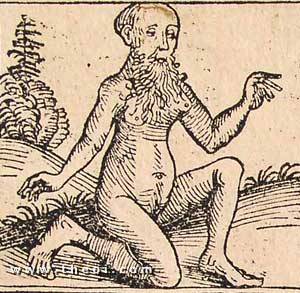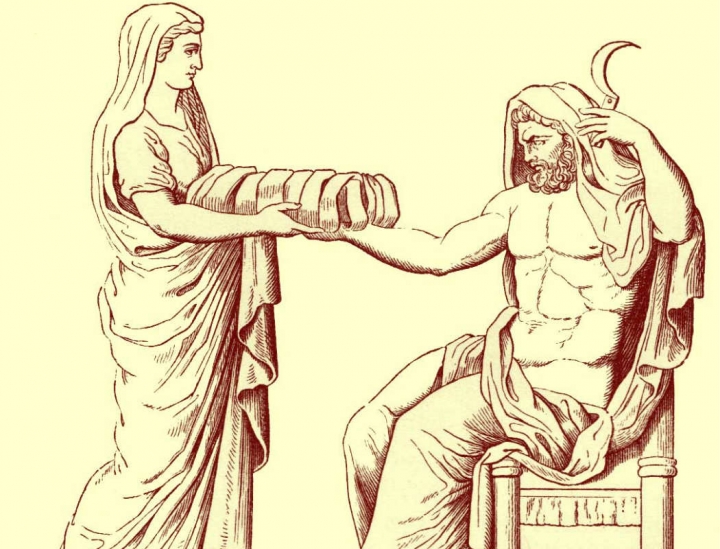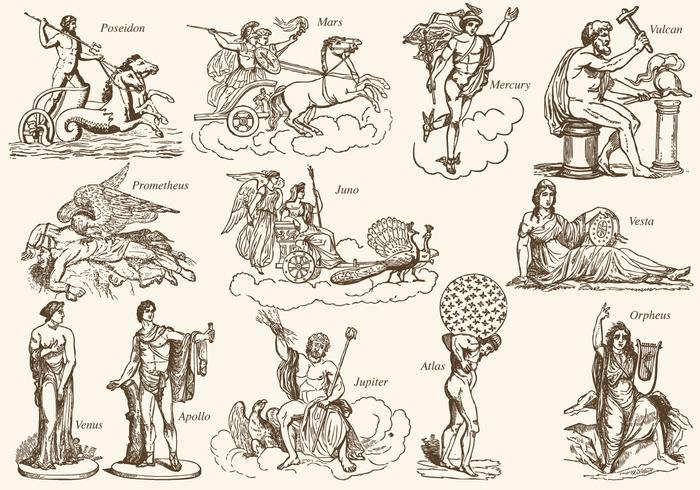Later American Experience
by
Charles Lamson
The creation of the most important document in our nation's history, the Constitution, owed much to public relations. Federalists, who supported the Constitution fought tooth and nail with anti-federalists, who opposed it. Their battle was waged in newspaper articles, pamphlets, and other organs of persuasion in an attempt to influence public opinion. To advocate ratification of the Constitution, political leaders such as Alexander Hamilton, James Madison, and John Jay banded together, under the pseudonym Publius, to write letters to leading newspapers. Today those letters are bound in a document called The Federalist Papers and are still used in the interpretation of the Constitution.
 |
After its ratification, the constitutional debate continued, particularly over the document's apparent failure to protect individual liberties against government encroachment. Hailed as the father of the Constitution, Madison framed the Bill of Rights in 1791, which ultimately became the first 10 amendments to the Constitution. Fittingly, the first of those amendments safeguarded, among other things, the practice of public relations: Congress shall make no law respecting an establishment of religion, or prohibiting the free exercise thereof; or abridging the freedom of speech, or of the press, or the rights of the people peaceably to assemble, and to petition the government for a redress of grievances.In other words, people were given the right to speak up for what they believed in and the freedom to try to influence the opinions of others. Thus was the practice of public relations ratified. Into the 1800s The practice of public relations continued to percolate in the 19th century. Among the more prominent, yet negative, antecedents of modern public relations that took hold in the 1800s was press agentry. Two of the better-known---some would say notorious---practitioners of this art were Amos Kendall and Phineas T. Barnum.  In 1829, President Andrew Jackson selected Kendall, a Kentucky writer and editor, to serve in his administration. Within weeks, Kendall became a member of Old Hisckory's "kitchen cabinet" and eventually became one of Jackson's most influential assistants. Kendall performed just about every White House public relations task. He wrote speeches, state papers, and messages, and turned out press releases. He even conducted basic opinion polls and is considered one of the earliest users of the "news leak." Although Kendall is generally credited with being the first authentic presidential press secretary, his functions and role went far beyond that position. Among Kendall's most successful ventures in Jackson's behalf was the development of the administration's own newspaper, the Globe. Although it was not uncommon for the governing administration to publish its own national house organ, Kendall's deft editorial touch refined the process to increase its effectiveness. Kendall would pen a Jackson news release, distribute it for publication to a local newspaper, and then reprint the press clipping in the Globe to underscore Jackson's nationwide popularity. Indeed, that popularity continued unabated throughout Jackson's years in office, with much of the credit going to the president's public relations adviser. Most public relations professionals would rather not talk about P. T. Barnum as an industry pioneer. Barnum, some say, was a huckster, whose motto might well have been "The public be fooled." Barnum's defenders suggest that although the impresario may have had his faults, he nonetheless was respected in his time as a user of written and verbal public relations techniques to further his museum and circus.  Like him or not, Barnum was a master publicist. In the 1800s, as owner of a major circus, Barnum generated article after article for his traveling show. He purposely gave his star performers short names---for instance, Tom Thumb, the midget and Jenny Lind, the singer---so that they could easily fit into the headlines of narrow newspaper columns. Barnum also staged bizarre events, such as the legal marriage of the fat lady to the thin man, to drum up free newspaper exposure. And although today's practitioners scoff at Barnum's methods, some press agents still practice his techniques. Nonetheless, when today's public relations professionals bemoan the specter of shysters and hucksters that still overhangs their field, they inevitably place the blame squarely on the fertile mind and silver tongue of PT Barnum.
Emergence of the Robber Barons
The American Industrial Revolution ushered in many things at the turn of the century, not the least of which was the growth of public relations. The 20th century began with small mills and shops, which served as the hub of the frontier economy, eventually giving way to massive factories. Country hamlets which had been the center of commerce and trade, were replaced by sprawling cities. Limited transportation and communications facilities became nationwide railroad lines and communications wires. Big business took over and the businessman was king.
The men who ran America's industries seemed more concerned with making a profit than with improving the lot of their fellow citizens. Railroad owners led by William Vanderbilt, bankers led by J.P. Morgan, oil magnets led by John D. Rockefeller, and steel impresarios led by Henry Clay Frick ruled the fortunes of thousands of others. Typical of the reputation acquired by this group of industrialists was the famous and perhaps apocryphal response of Vanderbilt when questioned about the public's reaction to his closing of the New York Central Railroad: "The public be damned!"

Little wonder that Americans cursed Vanderbilt and his ilk as "robber barons," who cared little for the rest of society. Although most who depended on these industrialists for their livelihood felt powerless to rebel, the seeds of discontent we're being sown liberally throughout society.
Enter the Muckrakers
When the axe fell on the robber barons, it came in the form of criticism from a feisty group of journalists dubbed muckrakers. The "muck" that these reporters and editors "raked" was dredged from the supposedly scandalous operations of America's business enterprises. Upton Sinclair's novel The Jungle attacked the deplorable conditions of the meatpacking industry. Ida Tarbell's History of the Standard Oil Company stripped away the public facade of the nation's leading petroleum firm. Her accusations against Standard Oil Chairman Rockefeller, many of which were unproven, nonetheless stirred up public attention.
Magazines such as McClure's struck out systematically at one industry after another. The captains of industry, used to getting their own way and having to answer to no one, were wrenched from their peaceful passivity and rolled out on the public carpet to answer for their sins. Journalistic shock stories soon lead to a wave of sentiment for legislative reform.
As journalists and the public became more anxious, the government got more involved. Congress began passing laws telling business leaders what they could and could not do. Trust-busting became the order of the day. Conflicts between employers and employees began to break out, and newly organized labor unions came to the fore. The Socialist and Communist movements began to take off. Ironically, it was a period when free-enterprise reached a peak in American history, and yet at that very climax, the tide of public opinion was swelling up against business freedom, primarily because of the breakdown in communications between the businessman and the public.
For a time, these men of inordinate wealth and power found themselves limited in their ability to defend themselves and their activities against the title wave of public condemnation. They simply did not know how to get through to the public to tell their side of the story. The business barons first tried using the lure of advertising to silence journalistic critics. They tried to buy off critics by paying for ads in their papers. It didn't work. Next, they paid publicity people, or press agents, to present their companies positions. Often these Hired Guns painted over the real problems of their client companies. The public saw through this approach.
Clearly, another method had to be discovered to get the public to at least consider the business point of view. Business leaders were discovering that a corporation might have capital, labor, and natural resources, yet be doomed to fail if it could not influence public opinion. The best way to influence public opinion, as it turned out, was through honesty and candor. This simple truth was the key to the accomplishments of American history's first great public relations counselor.
Ivy Lee: The Real father of modern public relations
Ivy Ledbetter Lee was a former Wall Street reporter, the son of a Methodist minister, who plunged into publicity work in 1903 (Figure 1). Lee believed neither in Barnum's public-be-fooled approach nor Vanderbilt's public-be-damned philosophy. For Lee, the key to business acceptance and understanding was that the public be informed.

Figure 1
Father of Public Relations. Ivy Lee.
Lee disdained the press agents of the time, who used any influence or trick to get a story on their clients printed, regardless of the truth or merits. By contrast, Lee firmly believed that the only way business could answer its critics convincingly was to present its side honestly, accurately, and forcefully. Instead of merely appeasing the public, Lee thought a company should strive to earn public confidence and goodwill.
In 1914, John D Rockefeller Jr., son of one of the nation's most maligned and misunderstood men, hired Lee to assist with the fallout from the Ludlow massacre affecting his Colorado Fuel and Iron Company. Lee's advise to Rockefeller was simple:
Tell the truth, because sooner or later the public will find it out anyway. And if the public doesn't like what you are doing, change your policies and bring them into line with what the people want.
Despite the tragedy of Ludlow, Lee encouraged Rockefeller to create a joint labor-management board to mediate all workers grievances on wages, hours, and working conditions. It was a great success the mine workers and the public began to see John D Rockefeller Jr. in a different light. Most important, he began to see them in a new light as well. As Rockefeller's youngest son, David, recalled nearly a century later, "My father was changed profoundly by his meetings with the workers. It was a lesson that stayed with him throughout the rest of his life and one of the most important things that ever happened to our family."
In working for the Rockefellers, Lee tried to "humanize" them, to feature them in real life situations such as playing golf, attending church, and celebrating birthdays. Simply, Lee's goal was to present the Rockefellers in terms that every individual could understand and appreciate.
Ironically, even Ivy Lee could not escape the glare of public criticism. In the late 1920s, Lee was asked to serve as an adviser to the parent company of the German Dye Trust, which, as it turned out, was an agent for the policies of Adolf Hitler. For his involvement with the Dye Trust, Lee was branded a traitor and dubbed "Poison Ivy" by members of Congress investigating un-American activities. Ironically, the smears against him in the press rivaled the most vicious ones against any of the robber barons.

Despite his unfortunate involvement with the Dye Trust, Ivy Lee is recognized as the individual who began to distinguish publicity and press agentry from public relations based on honesty and candor. for his seminal contributions to the field, Ivy Lee should be considered the real father of public relations.
*SOURCE: THE PRACTICE OF PUBLIC RELATIONS, 10TH ED., 2007, FRASER P. SEITEL, PGS. 26-31*
end
|


No comments:
Post a Comment